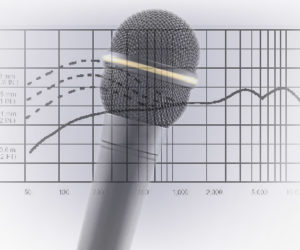Putting together a full mix I’m happy with doesn’t happen by accident. Oftentimes, I tend to be my own worst critic and take it personally if I fall below my own mark.
Even though there are many elements that have to come together for a great mix to come to life, here’s a few practical tips I use to get things rocking.
System Tuning
System tuning can be quite involved depending on the complexity of your system. Usually this involves figuring out proper amp gain structure, optimizing each speaker component and how they relate to the actual speaker cabinet, and how all those speakers work as a whole. After that, some equalization and limiting is still usually necessary. Really simple right?
Well, even though it sounds complicated, it still needs to get done. But here’s the deal: Don’t be afraid to ask for help.
Even engineers running at the top of their game commonly have other audio professionals come in to help get their system tuned. Asking for help doesn’t mean you suck. In fact, it actually might just make you the smartest person in the room.
Some of us have spent many years tuning rooms in all kinds of situations. If you haven’t had those kinds of experiences, it’s no big deal. But it’s completely unrealistic to think you can be as proficient as someone else who has spent a career doing it.
One more thought here: Whenever you’re listening to your PA, either to analyze the quality, performance, and output ability of your audio rig or as part of a tuning process, listen to realistic and contextual content on the PA, i.e. something similar to what you’ll actually be mixing in the room. So many people want to listen to the latest and greatest content out there to rock their PA but if it isn’t content similar to what you’ll be using in the room you’re completely missing the point.
Want a place to start for a good tuning list? See my list at www.mxu.rocks/soundcheck.
Get To Know Your Sounds At The Source Before Amplifying Them Through The PA
Knowing how all the individual inputs sound BEFORE you amplify them is paramount to a rocking mix. If the first time you listen to an input source is through the PA, you’re already in the negative. Know what the guitar rig sounds like at the amp. Know what your drums sound like while standing in front of them. Mixing is a great responsibility. Take it seriously and do the homework.
If you get familiar with this information, it WILL affect how you dial in your PA and it WILL affect your mix. If I have to do a radical amount of board equalization and tweaks just to get a sound presentable, it usually means I haven’t done the homework listening and working on the sources and/or I haven’t done a good job tuning the PA.
Control Your Sources
This goes hand in hand with knowing your sounds at the source. You’ve got to get your band instruments and stage volume under control in the room before you attempt to rock a mix. No amount of work at the console is going to fix poorly controlled sources. I’ve dedicated entire blogs to this before but here’s a few points:
Drums: Get your drums under control. Have the drummer play softer, use smaller sticks, acquire a drum booth, whatever it takes.
Guitar amps: Isolate the cabinets backstage, use amp modelers, go direct. Again, whatever it takes.
Organ Leslie cabinets: Lovely in a mix but can be a huge problem when left to roam freely onstage.
Stage monitors: I suggest moving musicians to in-ear monitors but until then, go actually listen to the stage monitors and ONLY put in them what the musician NEEDS to play or sing. How about we read that one more time—only what they NEED, not WANT. Godspeed on that one my friends. In-ears anyone?
Make sure individual sounds are leveled out from the instruments and players before you start mixing. This can be a game-changer. Take a few minutes and have them change their output levels from patch to patch so you aren’t chasing them during the whole mix. You’ll thank me later.





